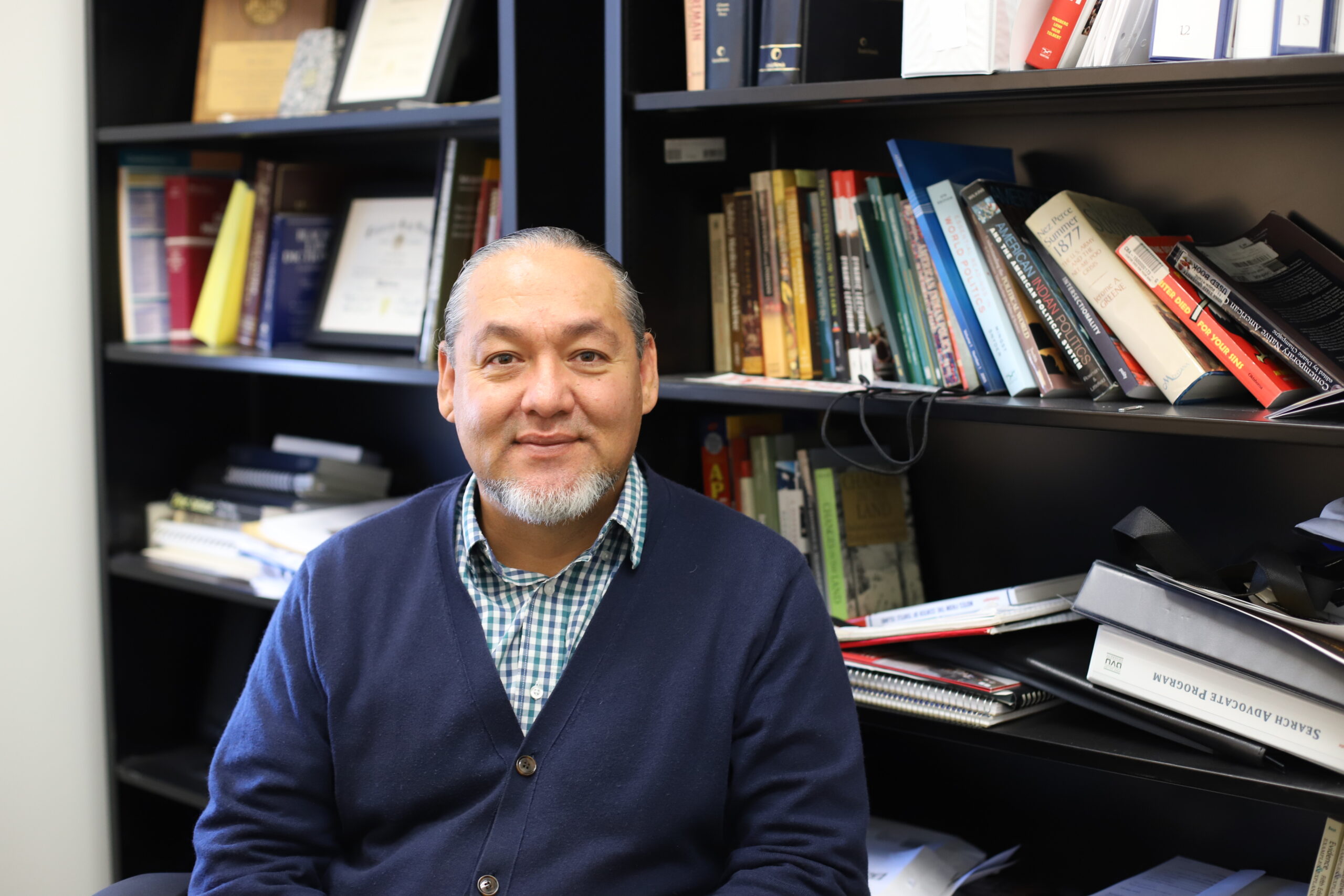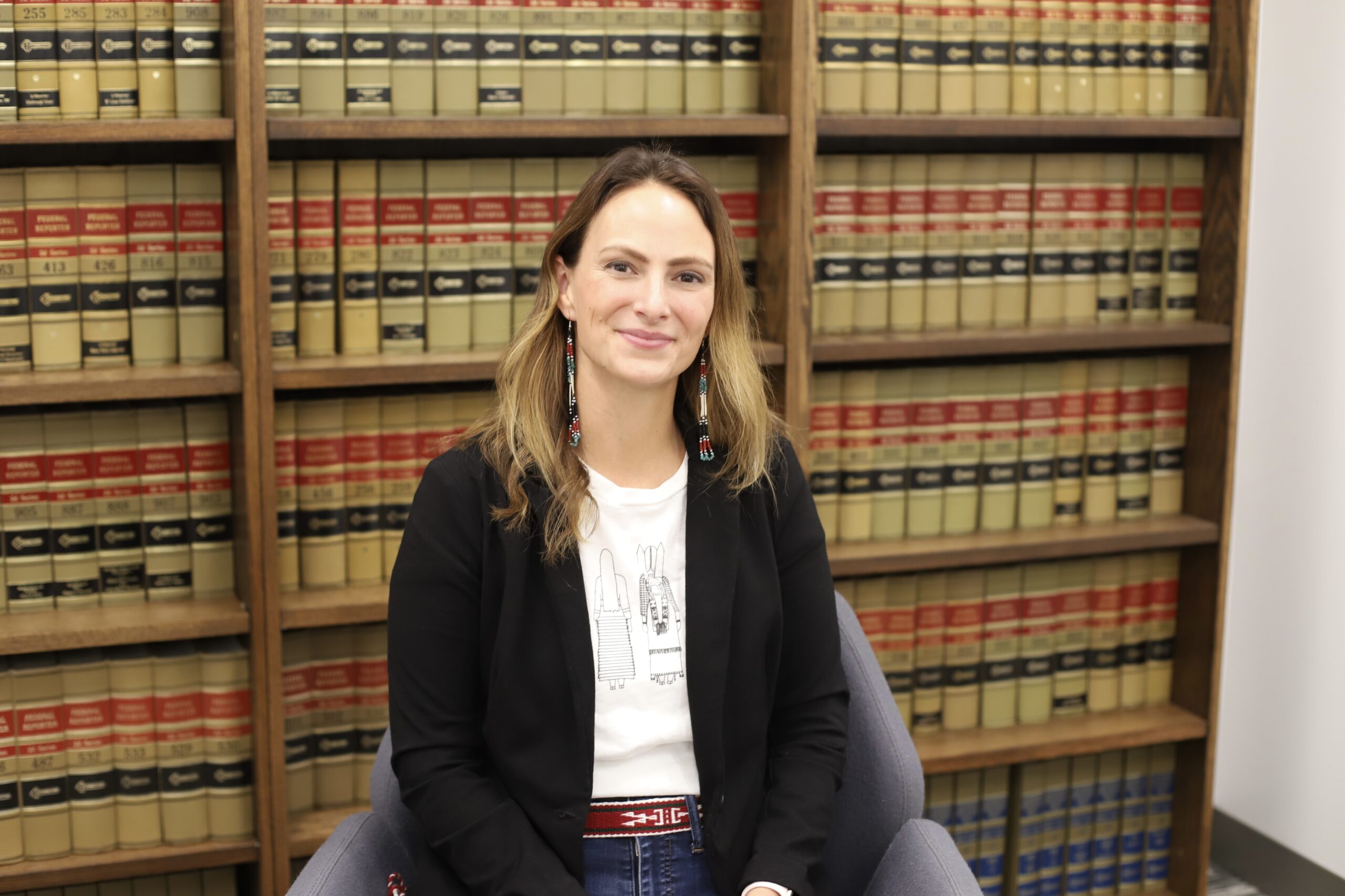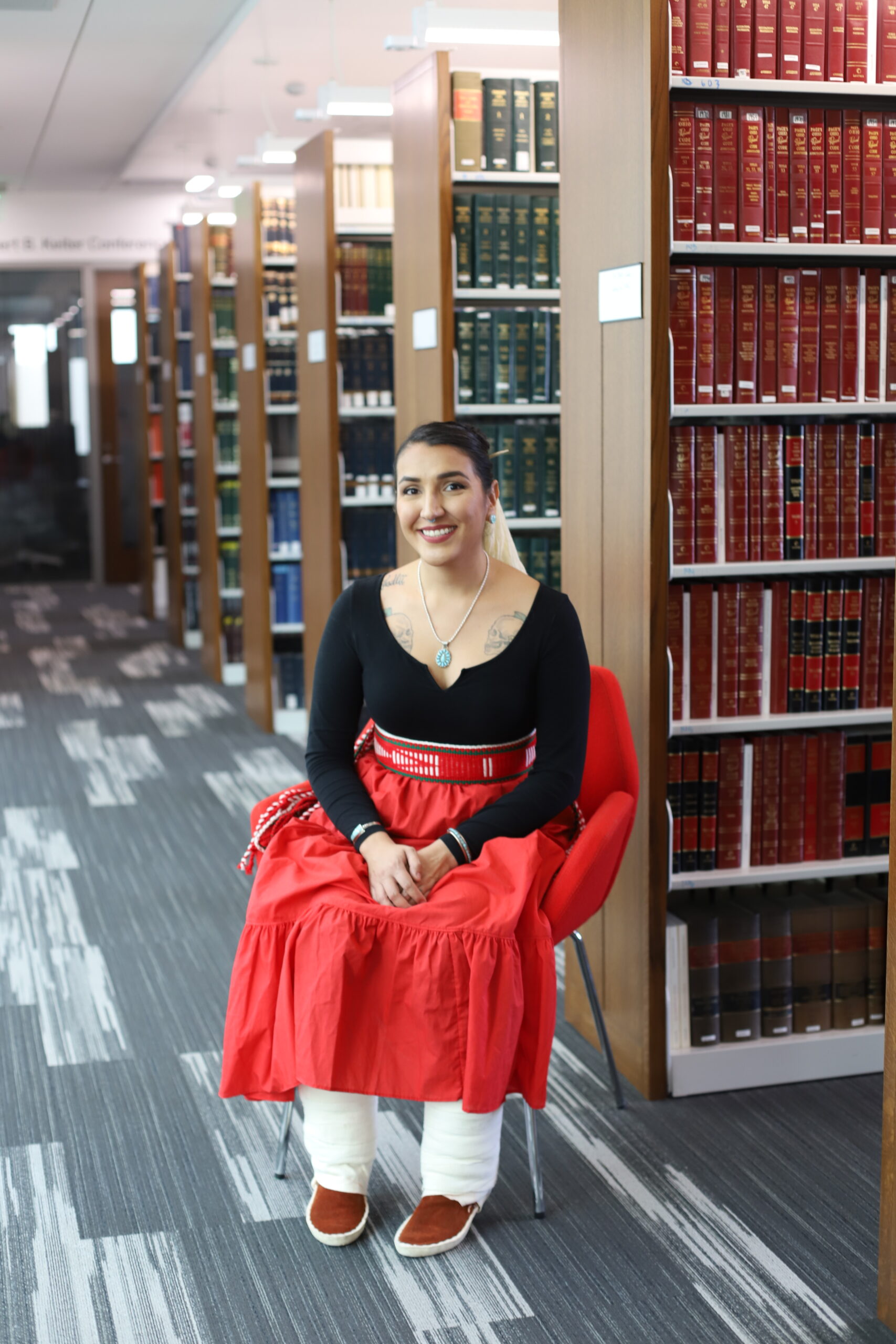November is recognized as Native American Heritage Month. This month celebrates and honors Indigenous/Native American/American Indian/Native Alaskan peoples and commemorates their histories and cultures. Honoring this month is especially important for the University of Utah, as the university exists on the ancestral homeland of the Shoshone, Paiute, Goshute, and Ute Tribes.
Dean Elizabeth Kronk Warner, a member of the Sault Ste. Marie Tribe of Chippewa Indians, led the university in creating an Indigenous Land Acknowledgment. This acknowledgment is read before many university events in an effort to recognize and honor Indigenous peoples.
Dean Kronk Warner also wrote this article that outlines the many ways the University of Utah is working to support the success and recognition of Native peoples.
Thoughts from the SJQ Community
Dustin Jansen, SJQ ’06, Director of the Utah Division of Indian Affairs, Assistant Professor of American Indian Studies at UVU, tribal court judge, citizen of the Navajo Nation
 “I think honoring Native American Heritage Month is not only recognizing the contributions of Native people throughout history, but also understanding the role Native people still play today. We need recognition that we’re still here and recognition of the things that we’ve done to contribute to America.”
“I think honoring Native American Heritage Month is not only recognizing the contributions of Native people throughout history, but also understanding the role Native people still play today. We need recognition that we’re still here and recognition of the things that we’ve done to contribute to America.”
“I hope it triggers a desire to learn more about Native people today. To understand that there are 574 federally recognized tribes in the United States. Yes, we are a race of people, but also we are political entities and that’s something that was recognized long before the United States was even established, predating the Constitution. I hope people understand that these governments are still functioning, they’re still running. They have elected tribal leaders, they have judicial systems and legislative branches, they make laws and rule themselves by those laws. They enter into agreements and form relationships on the state and federal levels. And this is happening today. And not too many people know that. So I hope the study of Native American history sparks that desire to learn more about who Native people are today.”
Heather Tanana, SJQ ’10, Assistant Research Professor & Wallace Stegner Center Fellow at SJQ, citizen of the Navajo Nation
 “It’s surprising how little we’re taught in our American educational system about tribes and Native Americans. There was actually a study done not too long ago that showed a remarkable amount of people didn’t know that Native Americans and tribes still exist today. But we’re very much present and we are elevating our own communities and also contributing to broader society and the U.S. in general. This month is always the time to reflect on the contributions of Native Americans in this country.”
“It’s surprising how little we’re taught in our American educational system about tribes and Native Americans. There was actually a study done not too long ago that showed a remarkable amount of people didn’t know that Native Americans and tribes still exist today. But we’re very much present and we are elevating our own communities and also contributing to broader society and the U.S. in general. This month is always the time to reflect on the contributions of Native Americans in this country.”
“I hope our community takes the opportunity to learn more about our tribal nations here in Utah, and to dive into what it means to be a sovereign nation. There’s a really unique, legal history and law that applies to our tribes that most people aren’t aware of.
Take the time to educate yourself because that past history, the law, it has such an impact on the general wellbeing and the public health of Native Americans within our state. And we can’t address challenges, we can’t promote better child welfare or improve the criminal justice system for Native Americans, unless we understand the past and the laws that are implicated.
So I really encourage you to reach out. There’s a lot of great communities here that we have that serve Native Americans. There’s the Urban Indian Center of Salt Lake and Restoring Ancestral Winds. There are a lot of different groups and individuals who are willing to share their knowledge with you. So take up those opportunities and learn more.”
Kari James, SJQ ’22, citizen of the Navajo Nation
“Remembering where you come from is ingrained so much in Native American culture, especially the Navajo culture. Knowing where your roots are and  living inside the four sacred mountains and giving back to your people, that’s something that the Navajo people have always stressed. And I think the great thing about Native American Heritage Month is it allows us to remember our own roots and the people that are still living back on the reservation. It allows us to remember our ancestors and where we’ve come from and how much further we need to go.”
living inside the four sacred mountains and giving back to your people, that’s something that the Navajo people have always stressed. And I think the great thing about Native American Heritage Month is it allows us to remember our own roots and the people that are still living back on the reservation. It allows us to remember our ancestors and where we’ve come from and how much further we need to go.”
“The best way to honor Native American Heritage Month is to really look into some of the issues that are affecting Native American communities. We have disproportionate rates of crime. We have an epidemic going on of missing and murdered Indigenous women. And we have a lot of issues with cultural appropriation. And I think the best way to actually learn these things and understand these things is to look at Native American voices themselves.
There’s a lot of literature out there that you could look at and read that is written by Native Americans, talking about their own heritage and sharing ways that non-Native Americans can help support these communities. And another thing that is very vital, especially when it comes to Native American Heritage Month is allowing Native Americans to have a seat at the table and allow their voices to be heard. I think that’s very crucial, especially since not a lot of Nativa Americans have that opportunity in the academic fields. Giving Native Americans the platform to be their own advocates is something that has been invisible in the past. And we’re definitely making the right strides to amplify those Native American voices.”
“I think it’s important to know that Native Americans are still here and that we are trying to establish our own self-determination and our own tribal sovereignty, and we need assistance with that. Especially when it comes to the legal fields. There aren’t a lot of Native American lawyers out there that can advocate for their own tribal communities, and we need more lawyers and more professionals to come in and be allies with us and help us achieve these goals without taking them away from us.”
Research
See below to learn about some of the research efforts from the S.J. Quinney College of Law into issues that impact Native communities.
Professor Alex Skibine, The Tribal Right to Exclude Others from Indian-Owned Lands
Dean Kronk Warner, White Earth Nation rights of nature case
Research Associate Professor Heather Tanana, tribal access to clean drinking water
Dean Kronk Warner and Associate Professor Tanana, impact of climate change on indigenous communities
Associate Professor Tanana, COVID-19 relief for the Navajo Nation.
Law student Kari James carves pathways for future tribal justices
Events
Click here to watch a two-part CLE webinar:
The Development of Indian Law within Utah and the United States
The Legal Realities of Native Americans in Utah and How You Can Help
Join us on November 17th for the Dean’s Book Review on The Night Watchman in honor of Native American Heritage Month.
Media
Celebrate Natie American Heritage Month with these 6 reads
Reservation Dogs on Hulu, featuring Native actors, directors, and writers
Get Involved
Urban Indian Center of Salt Lake
Click here to give to the Flora Sombrero/Neeta Lind Diné (Navajo) Law Scholarship Fund.
Learn more about Native American Heritage Month here.
